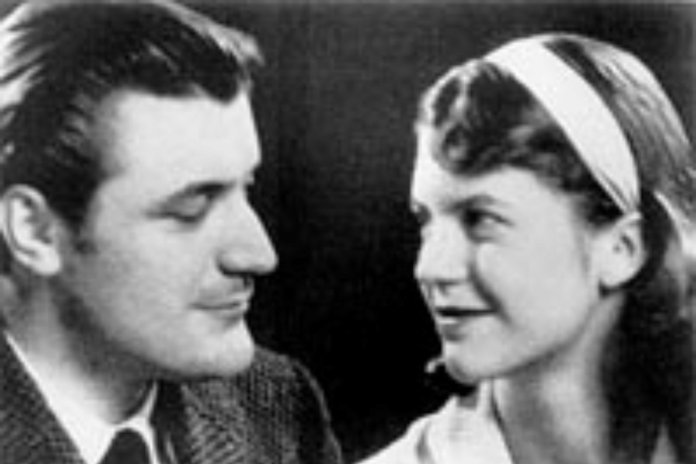New Delhi: Sylvia Plath is remembered as “a bereaved daughter, asylum patient, and wronged wife”. But the American poet and novelist was much more than that. Heather Clark, author of the 2020 book Red Comet: The Short Life and Blazing Art of Sylvia Plath, wants to set the record straight and contextualise Plath in today’s world.
Throughout history and across cultures, male poets have been idolised and women poets sidelined. Plath and English writer and novelist Virginia Woolf were victims of this double standard. Women who claim to be poet-prophets find that their attempts are likened to witchcraft or quasi-occult practices by the male critical establishment, said Clark, at a recent virtual talk organised by the India International Centre as part of its ongoing series ‘A Year of Poetry at IIC’.
She discussed how events in Plath’s life, and her decision to end it, distract us from the power of her art. “The posthumous identification of Plath with priestly possession and witchcraft is, at its worst, sexist and, at its best, patronising,” added Clark.
More often than not, women writers who suffer from mental illnesses or commit suicide are often regarded as ‘psychological case histories first and writers second.’
“Plath’s suicide provides critics with an excuse not to take her art seriously and equate her fame with death,” said Clark, and perhaps this is why discussing the poet and her work is so important. Her poems may have been “written on the edge of madness”, but her clarity of thought and control over their form elevates her work, especially her last volume The Collected Poems, edited by her husband Ted Hughes.
By trying to indicate Plath’s relevance in today’s times, Clark seems to almost make an impassioned plea to “show that [Plath’s] writing and life existed in a ‘complex dialogue’ that made ethical, political and intellectual demands on readers.” For Clark, the goal is to show how Plath created art, not “how she became it”. And that is what she explores in Red Comet, which became a finalist for the 2021 Pulitzer Prize and was selected for the New York Times’ 10 Best Books of 2021.
Also read: She’s called SRC aunty and is keeping Faiz, Badr and Bachchan alive for Delhiwalas
Why should we still read Plath?
Reading Plath leads one to “explore and explode” some of the cliches that cling to the poet and her work, according to Clark. She was impressed by the poet’s ambition to take up space — both physically and intellectually — in a male-dominated world.
“We are used to biographies of great men taking up space; we take it for granted that they have earned it…but the standard somehow seems higher for women,” she said.
Clark pointed out how often it was Plath’s own biographers who reduced her to “a self-aggrandising, cursed woman”. One of them said she was “addicted to achievement the same way an alcoholic is hooked on to booze”. Her ambition was reduced to pathology stemming from an “interior hollowness”. In a way, she reminds us how Plath’s death was reduced to a crude symbol of female ambition.
Plath cherished her own ‘weirdnesses”. For Clark, it is pertinent not to present her as an ‘airbrushed, feminist saint’, for the idea can put off some people too. She remembered how she was once asked: “Why should men read Plath?”
Clark mentions that when Plath was graduating from Smith College, her class was asked to “embrace the humble role of the housewife and focus their energies on their husband’s goals. With can-openers in one hand and a baby in the other, they were to create peaceful, disciplined homes”. Plath chose to defy all that.
The careful feminist
Clark weighs every adjective before putting it down to paper. She recalled how, when writing Red Comet, she made a mental note not to use words like obsessed, neurotic, tragic, helpless, fragile, or doomed. In later edits, she even removed the word ‘recover’, even from the title of her book.
During the virtual talk, Clark discussed the larger cultural disregard for women’s dreams and hopes. Plath managed to scale some of the gendered barriers of her time with her talent and determination.
“When Lady Lazarus vows to ‘eat men like air’ or when she writes, ‘Daddy, Daddy you bastard, I’m through’, it signalled to a generation of women that she had triumphed over fathers and all that patriarchy stood for,” said Clark.
After her death, Plath’s words became a catchphrase for feminists. Her works such as Daddy, Lady Lazarus, Fever 103, Purdah, Three Women, and The Applicant speak powerfully of the issues of gender. According to Clark, by the time these poems gathered a popular, mainstream readership, the personal had become political.
Her poems were among the first in American literature that dealt with the anxieties of motherhood, postpartum depression, childbirth, and miscarriage. In a culture that sanitised and sentimentalised motherhood, her work was radical.
Clark also remembered how Plath had read a poem about miscarriage on the BBC in 1961. That was a time when the word ‘pregnant’ was banned on TV networks in America.
(Edited by Humra Laeeq)






